Series Content Conversations: Strategies for ELLs: Evidence-Based Academic Discussion: Getting Started
ELA.SL.4.1a
| Common core State Standards
- ELA: English Language Arts
- SL: Speaking and Listening Standards K-\x80\x935
- 4: 4th Grade
-
1a:
Engage effectively in a range of collaborative
discussions (one-on-one, in groups, and teacherled)
with diverse partners on grade 4 topics and
texts, building on othersâ\x80\x99 ideas and expressing
their own clearly.
a. Come to discussions prepared, having read
or studied required material; explicitly draw
on that preparation and other information
known about the topic to explore ideas under
discussion.
b. Follow agreed-upon rules for discussions and
carry out assigned roles.
c. Pose and respond to specific questions to
clarify or follow up on information, and make
comments that contribute to the discussion
and link to the remarks of others.
d. Review the key ideas expressed and explain
their own ideas and understanding in light of
the discussion.
ELA.SL.4.1b
| Common core State Standards
- ELA: English Language Arts
- SL: Speaking and Listening Standards K-5
- 4: 4th Grade
-
1b:
Engage effectively in a range of collaborative
discussions (one-on-one, in groups, and teacherled)
with diverse partners on grade 4 topics and
texts, building on othersâ\x80\x99 ideas and expressing
their own clearly.
a. Come to discussions prepared, having read
or studied required material; explicitly draw
on that preparation and other information
known about the topic to explore ideas under
discussion.
b. Follow agreed-upon rules for discussions and
carry out assigned roles.
c. Pose and respond to specific questions to
clarify or follow up on information, and make
comments that contribute to the discussion
and link to the remarks of others.
d. Review the key ideas expressed and explain
their own ideas and understanding in light of
the discussion.
ELA.SL.4.1c
Common core State Standards
- ELA: English Language Arts
- SL: Speaking and Listening Standards K-5
- 4: 4th Grade
-
1c:
Engage effectively in a range of collaborative
discussions (one-on-one, in groups, and teacher-led)
with diverse partners on grade 4 topics and
texts, building on others'\x80\x99 ideas and expressing
their own clearly.
a. Come to discussions prepared, having read
or studied required material; explicitly draw
on that preparation and other information
known about the topic to explore ideas under
discussion.
b. Follow agreed-upon rules for discussions and
carry out assigned roles.
c. Pose and respond to specific questions to
clarify or follow up on information, and make
comments that contribute to the discussion
and link to the remarks of others.
d. Review the key ideas expressed and explain
their own ideas and understanding in light of
the discussion.
Save to My Resources
PLEASE CREATE A NEW ACCOUNT OR LOG IN TO ACCESS THIS CONTENT
Enjoy your first video for free. Subscribe for unlimited access.
Have questions about subscribing?
Click Here to learn more about individual subscriptions.
Click Here to learn more about School and Institution access.
Discussion and Supporting Materials
Thought starters
- How does Ms. Horwitz help students prepare for the evidence-based discussion?
- How does Ms. Horwitz ensure for equity of voice during the discussion?
- What strategies does Ms. Horwitz use to support her students during the academic discussion, especially her ELL students?
In Partnership With:

School Details
Acorn Woodland Elementary School1025 81st Avenue
Oakland CA 94621
Population: 286
Data Provided By:

Teachers
Sarah Horwitz
Newest
|
4 MIN
|
5 MIN
|
5 MIN
UNCUT CLASSROOMS
| TCHERS' VOICE
English Language Arts
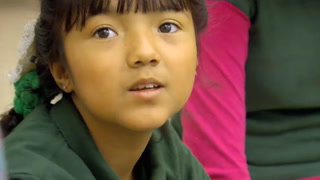
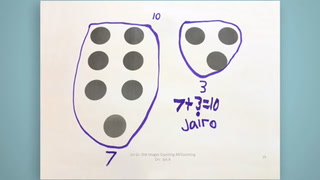
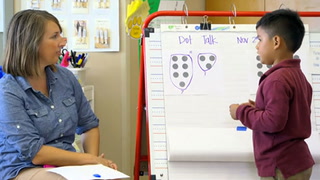
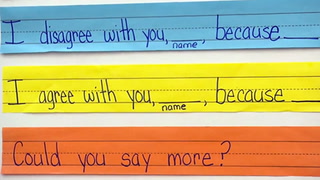
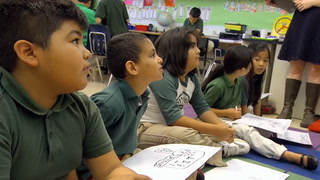
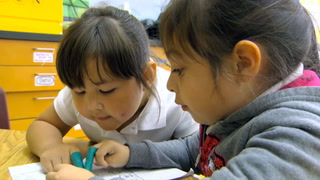
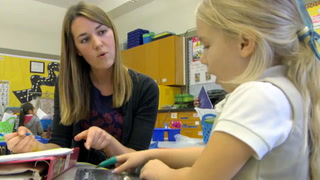
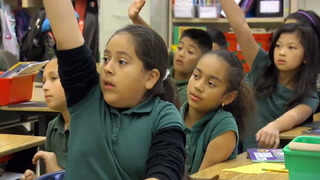
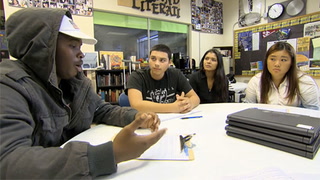
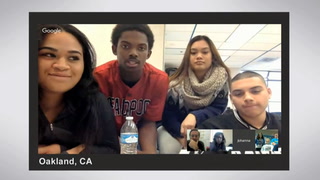
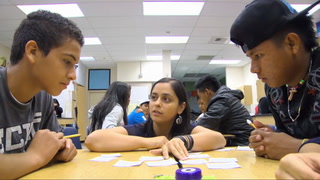
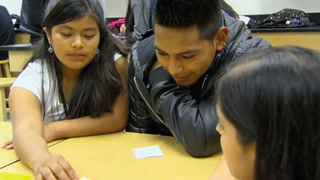
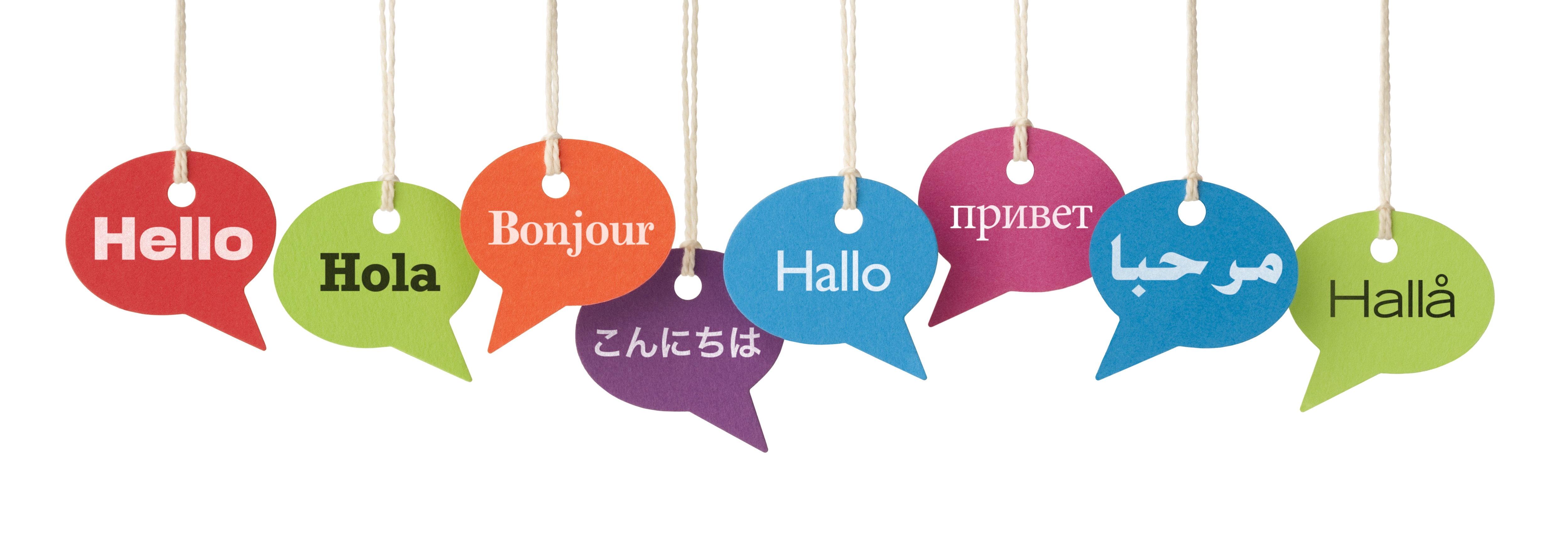








17 Comments
Priscilla Gough... Nov 21, 2021 7:42am
I love the entry ticket which allowed the students to plan out and prepare their claim on what is the most important issue. This goes along with CER - Claim, Evidence, and Reasoning something I am teaching my students to do in the 4th grade.
nadine sohl Jun 24, 2020 5:32pm
I thought the use of student-centered discussion was very important. It let the kids openly engage with questions and answers from peers, allowing for leadership roles. Kids like to be helpful so this environment lets them take learning into their own hands. Her use of chips was creative as it physically shows who has yet to speak. I think it is important for all kids, even the shy ones, to have a voice in their class.
Elena Hart-Cohen Feb 13, 2020 7:59pm
Ms. Horwitz asks children nfor evidence to support their the research they are doing. This helps broaden the children's curiosity and understanding about science. Ms. Horowitz supports her students bu graphing, using Venn Diagrams, T-Charts and other visual aids that helps foster their understanding of complex matters.
Racheal Smith May 17, 2018 8:54pm
Kyrstin Stehle Mar 31, 2018 1:53pm